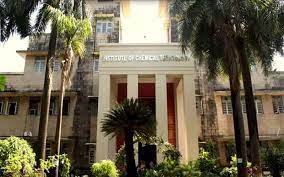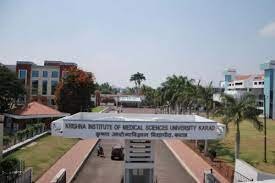Admission Process: M.A. in Political Science
The admission process for a Master of Arts (MA) program in Political Science is a crucial step for prospective students aiming to further their education and expertise in the field of political science. This process typically involves several key components, such as application submission, entrance exams, interviews, and document verification. Applicants should thoroughly research the specific requirements of each institution they are interested in and diligently prepare their application materials to maximize their chances of gaining admission to their desired program. Additionally, exploring financial aid options can help make pursuing an MA in Political Science more financially feasible.
1. Application Submission:
The first and foremost step in pursuing an MA in Political Science is to submit a well-prepared application to the respective educational institution. Most universities offer an online application portal where applicants can fill out personal information, academic history, and upload required documents. Ensure that all details in the application form are accurate and complete, as any errors may lead to disqualification.
2. Statement of Purpose (SOP):
Alongside the application form, universities often require applicants to submit a Statement of Purpose (SOP). This document is a critical component of the admission process as it provides insights into the applicant's motivations, goals, and reasons for pursuing an MA in Political Science. It is essential to write a compelling SOP that highlights your passion for the subject, relevant experiences, and how the program aligns with your career aspirations.
3. Letters of Recommendation (LORs):
Most universities require applicants to submit Letters of Recommendation from professors, employers, or mentors who can vouch for their academic abilities and character. Ensure that you request LORs from individuals who are well-acquainted with your academic or professional achievements and can provide meaningful insights into your qualifications and potential as a student.
4. Entrance Exams:
Many universities require candidates to take standardized entrance exams as part of the admission process. The specific exam and its format may vary from one institution to another. In the case of an MA in Political Science, you may be required to take exams such as the GRE (Graduate Record Examination) or a subject-specific test related to Political Science. Adequate preparation and a strong performance in these exams can significantly enhance your chances of admission.
5. Academic Transcripts:
Applicants must provide their academic transcripts, including undergraduate degree certificates and marksheets, as part of the application. Universities use these documents to assess the applicant's academic performance and ensure that they meet the minimum academic requirements for the program.
6. Interviews:
Some universities may conduct interviews as part of the admission process. During interviews, applicants may be asked about their academic interests, career goals, and motivations for pursuing an MA in Political Science. Adequate preparation and a clear articulation of your passion and objectives can help you succeed in these interviews.
7. Application Fee:
Universities typically charge an application fee, which varies from one institution to another. Applicants should be prepared to pay this fee during the application submission process. Fee waivers may be available for eligible candidates, so it's worth exploring these options.
8. Admission Decision:
Once all components of the application process are complete, universities will review applications and make admission decisions. Applicants are typically notified of their admission status through email or an online portal. It is essential to check application deadlines and admission timelines for each institution to ensure you are aware of when to expect a decision.
9. Acceptance and Enrollment:
If you receive an offer of admission, you will be required to accept the offer within a specified timeframe. This often involves paying an enrollment deposit and confirming your intent to join the program. Be sure to carefully read and follow the instructions provided by the university to secure your place in the program.
10. Financial Aid and Scholarships:
While not part of the admission process per se, it is essential to explore financial aid and scholarship opportunities offered by the university or external organizations to help fund your education. Many students seek scholarships and grants to alleviate the cost of tuition and living expenses.
 2 Years
2 Years
 Post Graduate
Post Graduate
 Arts
Arts






 back
back

